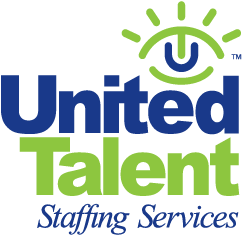In today’s competitive job market, employee engagement has become increasingly crucial for companies across all industries. Engaged employees are those who feel connected to their work, understand the impact they have on the company’s success, and are committed to their organization’s goals. They are more likely to stay with their employer and contribute to the growth and development of the company.
In contrast, disengaged employees can be detrimental to an organization’s success. They may be less productive, less innovative, and less devoted to the company’s objectives, ultimately leading to high turnover rates. By prioritizing employee engagement, employers can create a work environment that fosters employee satisfaction, motivation, and commitment.
In this blog, we’ll explore the link between employee engagement and retention and provide practical tips and strategies for employers to improve engagement in their workplace. Whether you’re a small business owner, a manager, or an HR professional, the insights shared here will help you keep your employees engaged and motivated for the long term, no matter the industry.
The Correlation between Engagement and Retention
Engagement: a term that is the foundation of fostering a positive and impactful work environment for employees. The ideology of an engaged employee refers to the level of enthusiasm and commitment they have toward their work and the organization. The link between engagement and retention is significant. Team members who feel involved are more likely to stay with an organization and are less likely to explore other job opportunities. Organizations can increase employee satisfaction, enhance motivation, and drive business success by fostering connection and purpose.
Factors that Affect Job Enthusiasm and Workforce Stability
Several factors affect employee motivation and staff retention. Workplace satisfaction is a critical factor that affects both. Employees who are happy with their job are more likely to be enthusiastic and less likely to look for other employment opportunities.
Below are examples of strategies that leaders can implement starting today to enhance the overall employee experience and retain top talent:
- Employee Engagement Surveys: Conducting regular surveys to gather employee feedback can help identify improvement areas and address any concerns. The survey can ask employees about their job satisfaction, their perception of the company culture, and what they think can be improved. The survey results can be used to develop targeted initiatives to increase job enthusiasm and staff retention.
- Employee Recognition Programs: Implementing an employee recognition program can help to increase morale and motivation. Recognizing employees for their contributions and hard work can help make them feel valued and appreciated, leading to increased job satisfaction and loyalty. Recognition comes in many forms; a few examples include bonuses, public praise, or even a simple thank you.
- Professional Development Opportunities: Offering opportunities for growth and development can help employees feel they are progressing in their careers. Providing training, mentorship programs, and career development plans can help members of a team develop new skills and improve their job performance.
- Competitive Compensation Packages: Offering competitive compensation packages can help to attract and retain top talent. Ensuring that employees are paid fairly and in line with industry standards can increase job satisfaction and reduce turnover rates. This can include benefits such as healthcare, retirement plans, and other perks that can improve the overall employee experience.
Strategies for Improving Workforce Involvement and Talent Retention
Organizations can implement various strategies to improve job enthusiasm and employee tenure. Providing opportunities for growth and development is essential in keeping employees engaged and motivated. Creating a positive work culture that aligns with the company’s values and mission can also contribute to workforce stability. Offering recognition and rewards for good performance is also crucial in retaining employees. Gallup, management consulting firm, recently surveyed thousands of employees across the U.S. and found interesting data on the importance of utilizing recognition programs in the workplace. Key statistics found when employee recognition programs hit the mark include:
- 5x as likely to see a path to grow in the organization
- 44% more likely to be “thriving” in their life overall
- 73% less likely to “always” or “very often” feel burned out
- 4x as likely to be actively engaged at work
- 5x as likely to feel connected to their workplace culture
Organizations can expect improved staff retention rates by investing in workplace initiatives to enhance employee engagement. Implementing strategies such as employee engagement surveys, recognition programs, professional development opportunities, and competitive compensation packages can all contribute to improving workforce involvement and talent retention. In addition to increased profitability and improved problem-solving, personnel continuity ensures knowledge retention and increased morale and motivation. At United Talent, we understand that retaining top talent is crucial for any organization’s success. That’s why we’re committed to providing personalized service and leveraging our extensive network of qualified candidates to help our clients achieve their goals. Contact us today to learn how we can help you achieve your staffing objectives and drive long-term success.

